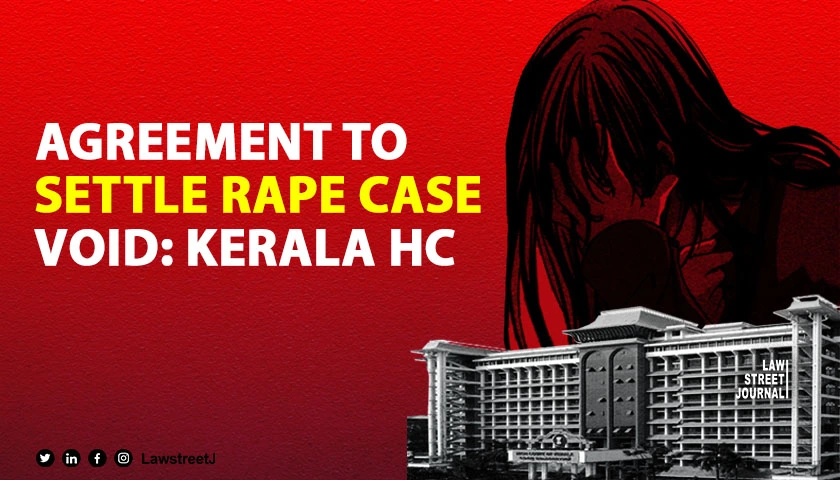Kerala: The Kerala High Court has delivered a significant ruling, holding that an agreement between a complainant and an accused to settle a rape case is void as it is opposed to public policy.
Justice A. Badharudeen dismissed a petition seeking to quash proceedings in a rape case based on settlement agreements between the parties. The court noted that the petitioner, Abdul Jaleel, was accused of raping a colleague at their workplace, the Vellangallur Grama Panchayat office. He was charged under Section 376(2)(b)(n) of the Indian Penal Code.
The petitioner sought to quash the FIR and all related proceedings based on two settlement agreements reached with the complainant. However, the court held that such agreements to stifle prosecution in serious offenses like rape are illegal and cannot serve as the sole basis for quashing proceedings.
Expressing its view on the legality of such agreements, the court stated: “It is well-settled law that any agreement or contract would be void if its consideration is opposed to public policy. Similarly, a contract or agreement to withdraw from prosecution is nothing but an attempt to stifle prosecution involving a public offense, which is also opposed to public policy.”
The court referred to Section 23 of the Indian Contract Act and several precedents to emphasize that agreements to compound non-compoundable offenses or stifle prosecution are invalid. It noted that even if such intent is not expressly stated in an agreement, courts can infer it from the evidence.
Justice Badharudeen observed that regarding the incident on March 13, 2016, the allegation of lack of consent could not be dismissed prima facie. He held that a trial was necessary to allow the prosecution to present its evidence.
Additionally, the court noted that agreements to settle public offenses like murder, rape, and atrocities against children have no legal standing. It cited precedents holding that using the threat of criminal prosecution to coerce an opponent into an agreement renders such an agreement invalid.
In conclusion, the court found no merit in the petition to quash proceedings and dismissed it, allowing the rape case against the petitioner to proceed to trial.




![Kerala HC Quashes 498A Dowry Harassment Case Against Live-In Partner, Citing Lack of Relative Status [Read Order]](/secure/uploads/2023/08/lj_5693_1057c042-1e57-4e27-8c9e-25af0ec38ec4.jpg)
![Watching porn on mobile: Kerala HC highlights importance of mother cooked meals, outdoor sports [Read Order]](/secure/uploads/2023/09/lj_9155_Parental_supervision_of_mobile_phone_usage.jpg)
![Lakshadweep MP Mohammed Faizal Disqualified from Lok Sabha After Conviction Suspension Plea Rejected by Kerala High Court [Read Notice]](/secure/uploads/2023/10/lj_9640_87b5fd97-0e05-4ff8-9a99-3be1e4446192.jpg)




